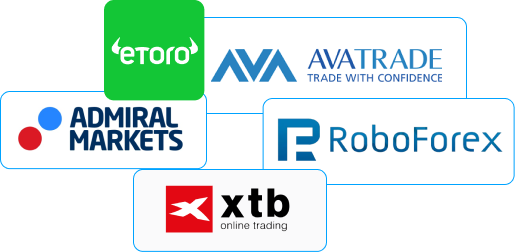Financial markets are platforms where buyers and sellers trade various financial instruments, such as stocks, bonds, currencies, and commodities. These markets play a crucial role in the global economy by facilitating the flow of capital, allowing businesses to raise funds, and providing investors with opportunities to grow their wealth. Understanding how these markets work is essential for anyone looking to participate in them, whether through direct investment or other financial activities.
What are Financial Markets?
Financial Market Types
Stocks represent ownership in a company and provide investors with the opportunity to participate in its growth and profitability. Trading stocks involves buying and selling shares of companies listed on public exchanges. Among the most important Stock Exchanges are the New York Stock Exchange (NYSE), the Tokyo Stock Exchange (Tokyo Stock Exchange) and, the London Stock Exchange (London Stock Exchange).
Visit this section to know more about the essentials of stock trading, including how to select stocks, understand price movements, types of stocks, understand dividends and risk and benefits of investing with stocks. Whether you’re new to the stock market or looking to refine your strategies, learning about stocks is a critical step in building a robust investment portfolio.
Elevate your trading skills with our comprehensive selection of Stock trading courses. Learn from the best and start trading today!
Or click on the blue arrow to learn more about what Shares are.
Exchange-Traded Funds (ETFs) offer a way to invest in a diversified portfolio of assets with the flexibility of trading like a stock. ETFs can track various indexes, sectors, or commodities, providing broad market exposure or targeted investment opportunities.
ETFs invest in assets or stocks following a specific benchmark such as the DOW JONES or the Nasdaq 100. Every time you buy a share in a listed fund you are buying a small part or a small percentage of all the assets that the fund has. ETFs have the advantage that they offer diversification and liquidity.
Visit this section to explore the benefits of ETFs, how they are structured, and the strategies for incorporating them into your investment plan. Whether you aim for broad diversification or sector-specific investments, ETFs are a versatile tool for any investor.
Elevate your trading skills with our comprehensive selection of ETFs trading courses. Learn from the best and start trading today!
Or click on the blue arrow to learn more about what ETFs are.
Forex, FX or Forex Exchange means foreign exchange market, i.e. the market where currencies are bought and sold worldwide. A currency is a foreign currency (different from the local currency) that can be exchanged at a certain rate. For example, in France, the Euro is the national currency while the dollar or the Mexican peso would be a foreign currency.
The Forex market is the largest and most liquid financial market in the world. Forex trading involves buying and selling currency pairs, with the goal of profiting from changes in exchange rates. Visit this section to know more about the basics of Forex, including how the market operates, key concepts like leverage, and strategies for successful trading. Whether you’re a novice or an experienced trader, understanding Forex is vital for engaging with this dynamic market.
Elevate your trading skills with our comprehensive selection of Forex trading courses. Learn from the best and start trading today!
Or click on the blue arrow to learn more about what Forex is.
Commodities are unprocessed basic goods or natural products such as oil, coffee, gold, silver, and cocoa, which are widely exchanged and in large quantities. These products are considered uniform, that is, products that can be easily replaced by others because they have similar characteristics and serve the same purpose.
There are four main categories of commodities: a) agricultural products such as coffee and sugar; b) energy products such as oil and gas; c) metal products such as gold, silver, and copper; and d) livestock and meat products. Not all commodities have the same liquidity, and therefore, some are traded more than others like oil and gold.
Investing in commodities can provide a hedge against inflation and diversification for a portfolio. Visit this section to explore how commodities are traded, the factors that influence their prices, and the risks and benefits associated with this type of investment. Whether you’re interested in physical commodities or futures contracts, understanding these markets is key to managing risk and capitalizing on global economic trends.
Elevate your trading skills with our comprehensive selection of Commodities trading courses. Learn from the best and start trading today!
Or click on the blue arrow to learn more about what Commodities are.
An index is an indicator of the average price of the shares or assets that make up the index and generally represent a specific market. There are hundreds of stock indices worldwide, representing companies or industries at national, regional, and global levels. An example of an index is the Dow Jones, which measures the performance of 30 of the most significant stocks listed on the New York Stock Exchange, e.g. Apple, Coca Cola, Microsoft, Visa, Walt Disney, etc
You cannot directly trade or buy an index because it is not a product in itself, but an indicator of the assets that make it up. Considering the above, people who trade indexes use derivatives or mutual funds (ETFs), among others, to speculate on the price of the index.
Elevate your trading skills with our comprehensive selection of Indexes trading courses. Learn from the best and start trading today!
Or click on the blue arrow to learn more about what Indexes are.
Find Your Trusted Broker
Finding the right broker is essential for a successful trading experience. Our Brokers review section provides a comprehensive view, comparing top brokers based on fees, user experience, and customer support. Whether one is a beginner or an experienced trader, these recommendations help users choose a broker that meets their needs, ensuring they have the tools and resources to trade with confidence.


 en
en es
es